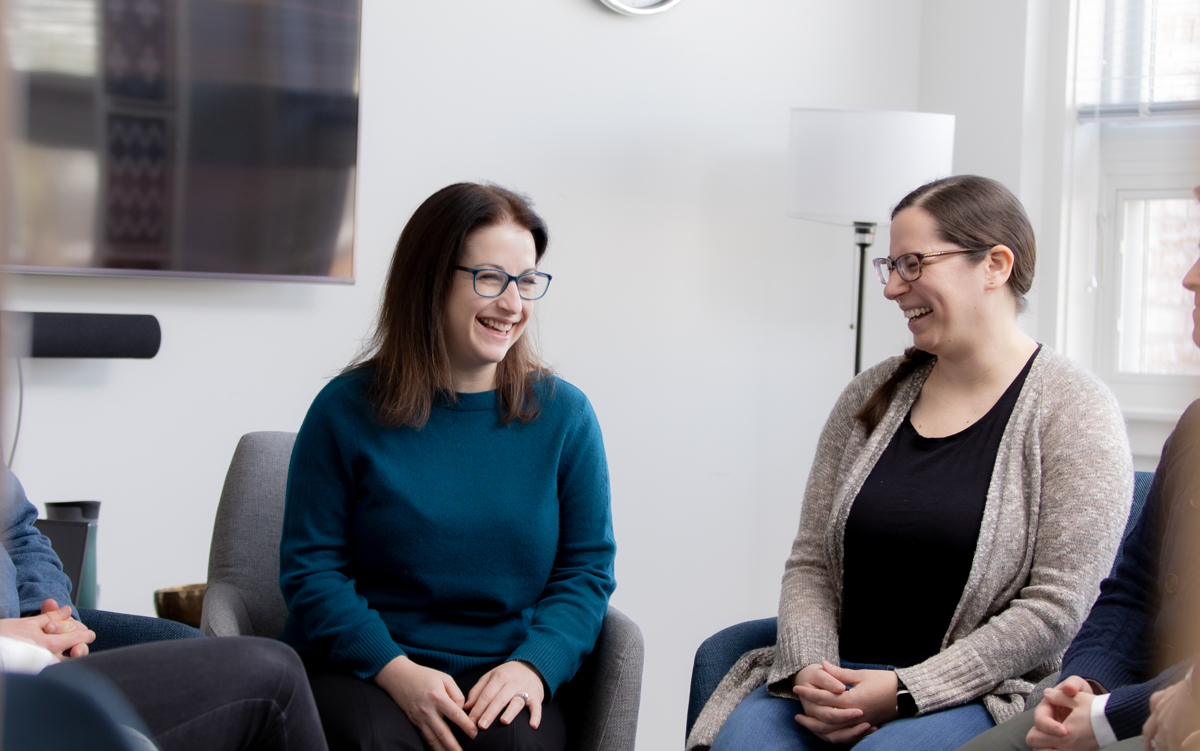Find community, gain confidence, and grow together with Group Therapy.
Supportive group therapy designed by experts to help adolescents, college students, and adults develop essential life skills, reduce anxiety, and achieve personal growth. Available in-person in Greater Boston or virtually throughout Massachusetts.
Group therapy at The Concord Center offers an evidence-based, community-focused way to connect with others and get compassionate guidance to improve your mental health.
Whether you’re navigating anxiety, coping with stress at college, managing mood disorders, or looking to develop stronger social skills, our groups provide supportive, structured environments led by experienced clinicians.
Who Group Therapy Can Help

- Children, Adolescents, & Families: Is your child struggling with anxiety, depression, or social difficulties at school or home? Our groups give young people proven strategies and peer connections to thrive.
- College Students & Adults: If you’re balancing college pressures, career stress, or personal challenges, our groups offer confidential, supportive spaces where you can grow, gain insights, and build meaningful connections.
Why Choose Group Therapy at The Concord Center
- Clinical Expertise Meets Real-World Support: Our groups provide guidance in a relatable, approachable setting, led by trained clinicians specializing in proven techniques like CBT, DBT, and ACT. These methods can help you learn practical skills to handle stress, navigate relationships, and feel better day-to-day.
- Family & Community-Focused: We understand mental health as a collaborative effort. Family involvement (for adolescent groups) and community engagement are central to our approach, creating lasting support networks that extend beyond the therapy room.
- Get Support Faster: Group therapy spots often open up sooner than individual therapy, so you can start getting the support you need without the wait. Many clients tell us that joining a group first helped them learn valuable skills, feel more prepared, and get even more out of their individual sessions later on.
- Telehealth Convenience: Several groups are accessible virtually. Join securely from home or campus without commuting or disrupting your busy schedule.
Group Offerings
Quickly find therapy groups relevant to you.

Children Ages 7–12

Teens Ages 13–18

College Students & Young Adults Ages 18–26

Parents & Caregivers
Ready to Begin?
How It Works

Frequently Asked Questions
Join a group today
If you or a loved one are seeking therapy that is compassionate, structured, and effective, we’re here to help. Get started by filling out our short inquiry form today or reach out to us directly. We’re here to support your journey toward better mental health — together.
